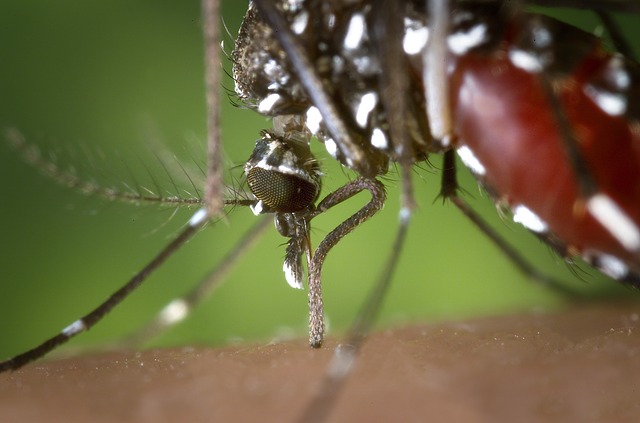Through Apr. 9, 2018, Thailand health officials have reported 6,565 total dengue cases from 75 of the 76 provinces. Included in this number is nine dengue related fatalities.

The 6,565 total cases can be broken down by dengue fever cases (3,878), dengue hemorrhagic fever (2,610 cases and 2 deaths) and dengue shock syndrome (77 cases and 7 deaths).
To date, Phuket has been hit the hardest with total morbidity, followed by Samutsakorn and Pangnga.
Dengue is a viral infection transmitted by the bite of an infected mosquito. There are four closely related but antigenically different serotypes of the virus that can cause dengue (DEN1, DEN 2, DEN 3, DEN 4).
- Dengue Fever (DF) – marked by an onset of sudden high fever, severe headache, pain behind the eyes, and pain in muscles and joints. Some may also have a rash and varying degree of bleeding from various parts of the body (including nose, mouth and gums or skin bruising).Dengue has a wide spectrum of infection outcome (asymptomatic to symptomatic). Symptomatic illness can vary from dengue fever (DF) to the more serious dengue hemorrhagic fever (DHF).
- Dengue Hemorrhagic Fever (DHF) – is a more severe form, seen only in a small proportion of those infected. DHF is a stereotypic illness characterized by 3 phases; febrile phase with high continuous fever usually lasting for less than 7 days; critical phase (plasma leaking) lasting 1-2 days usually apparent when fever comes down, leading to shock if not detected and treated early; convalescence phase lasting 2-5 days with improvement of appetite, bradycardia (slow heart rate), convalescent rash (white patches in red background), often accompanied by generalized itching (more intense in palms and soles), and diuresis (increase urine output).
- Dengue Shock Syndrome (DSS) — Shock syndrome is a dangerous complication of dengue infection and is associated with high mortality. Severe dengue occurs as a result of secondary infection with a different virus serotype. Increased vascular permeability, together with myocardial dysfunction and dehydration, contribute to the development of shock, with resultant multiorgan failure.
Rabies in Thailand: Deadly disease largely misunderstood
Thailand: Health officials predict 100 Melioidosis deaths in 2018
Thailand issues warning over the spread of the hand, foot, and mouth disease (HFMD)



2 thoughts on “Thailand dengue fever update”